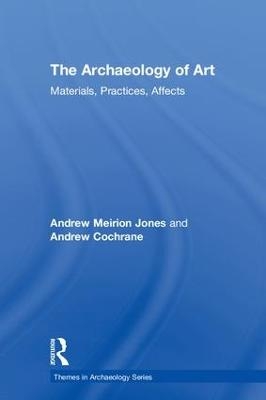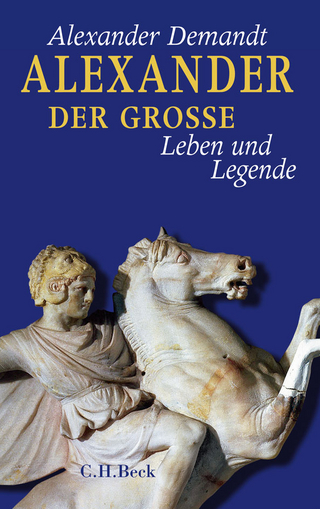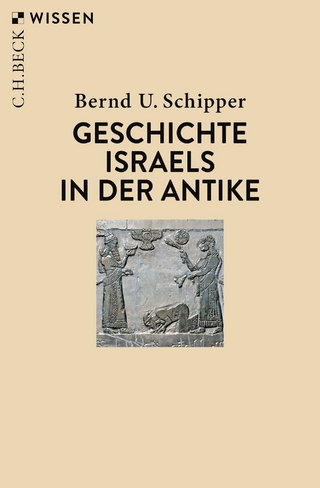
The Archaeology of Art
Routledge (Verlag)
978-1-138-91360-8 (ISBN)
- Titel z.Zt. nicht lieferbar
- Versandkostenfrei innerhalb Deutschlands
- Auch auf Rechnung
- Verfügbarkeit in der Filiale vor Ort prüfen
- Artikel merken
Traditional approaches to the archaeology of art have borrowed from the history of art and the anthropology of art by focusing on iconography, meaning, communication and identity. This puts the archaeology of art at a disadvantage as an understanding of iconography and meaning requires a detailed knowledge of historical or ethnographic context unavailable to many archaeologists. Rather than playing to archaeology’s weaknesses, the authors argue that an archaeology of art should instead play to archaeology’s strength: the material character of archaeological evidence.
Using case studies - examining rock art, figurines, beadwork, murals, coffin decorations, sculpture and architecture from Europe, the Americas, Asia, Australia, and north Africa -the authors develop an understanding of the affective and effective nature of ancient art and imagery. An analysis of a series of material-based practices, from gesture and improvisation to miniaturisation and gigantism, assembly and disassembly and the use of distinctions in colour enable key concepts, such as style and meaning, to be re-imagined as affective practices. Recasting the archaeology of art as the study of affects offers a new prospectus for the study of ancient art and imagery.
Andrew Meirion Jones is Professor of Archaeology, University of Southampton, UK. He has both taught and written extensively on the archaeology of art, particularly prehistoric rock art. His most recent books include ‘An Animate Landscape’ (Windgather, 2011), ‘Prehistoric Materialities’ (OUP, 2012) and ‘Archaeology after Interpretation (Left Coast Press, 2013) edited with Ben Alberti and Josh Pollard. He is currently completing a Leverhulme funded project using digital imaging to examine the remarkable art of Neolithic Britain and Ireland. Andrew Cochrane is a Lecturer in Archaeology, Cardiff University, and Fellow of the Society of Antiquaries. Previously, he was Project Curator at British Museum, and worked on several major exhibitions, including The Power of Dogu (British Museum: 2009), unearthed (Sainsbury Centre for Visual Arts: 2010), and Ice Age Art (British Museum: 2013). His most recent books include: ‘Visualising the Neolithic’ (Oxbow Press, 2012) edited with Andrew Jones, and ‘Art and Archaeology’ (Springer, 2014) edited with Ian Russell.
Contents
Chapter 1 – Excavating Art Andrew Meirion Jones
Chapter 2 – The archaeology of Art: practice, intra-action and affect Andrew Meirion Jones
Chapter 3 – Making and marking Andrew Meirion Jones
Chapter 4 - Experimentation, Performance, Improvisation Andrew Meirion Jones
Chapter 5 – Miniaturisation and scale Andrew Cochrane and Andrew Meirion Jones
Chapter 6 - Cognition, perception, affect: colour and light Andrew Cochrane and Andrew Meirion Jones
Chapter 7 – Assembly and disassembly Andrew Cochrane
Chapter 8 - Style, technology, and process Andrew Meirion Jones
Chapter 9 – Meaning and mattering Andrew Meirion Jones
Chapter 10 - Materials, Process, Image: the art of Neolithic Britain and Ireland Andrew Cochrane and Andrew Meirion Jones
Chapter 11 - Archaeology through the looking glass: photographic documentation and the politics of display Andrew Cochrane
Chapter 12 – Art in the Making Andrew Meirion Jones
| Erscheinungsdatum | 08.08.2018 |
|---|---|
| Reihe/Serie | Themes in Archaeology Series |
| Zusatzinfo | 16 Line drawings, black and white; 35 Halftones, black and white |
| Verlagsort | London |
| Sprache | englisch |
| Maße | 156 x 234 mm |
| Gewicht | 600 g |
| Themenwelt | Kunst / Musik / Theater ► Allgemeines / Lexika |
| Sachbuch/Ratgeber ► Geschichte / Politik ► Vor- und Frühgeschichte / Antike | |
| Geisteswissenschaften ► Archäologie | |
| Sozialwissenschaften ► Ethnologie | |
| Sozialwissenschaften ► Soziologie | |
| ISBN-10 | 1-138-91360-X / 113891360X |
| ISBN-13 | 978-1-138-91360-8 / 9781138913608 |
| Zustand | Neuware |
| Haben Sie eine Frage zum Produkt? |
aus dem Bereich


